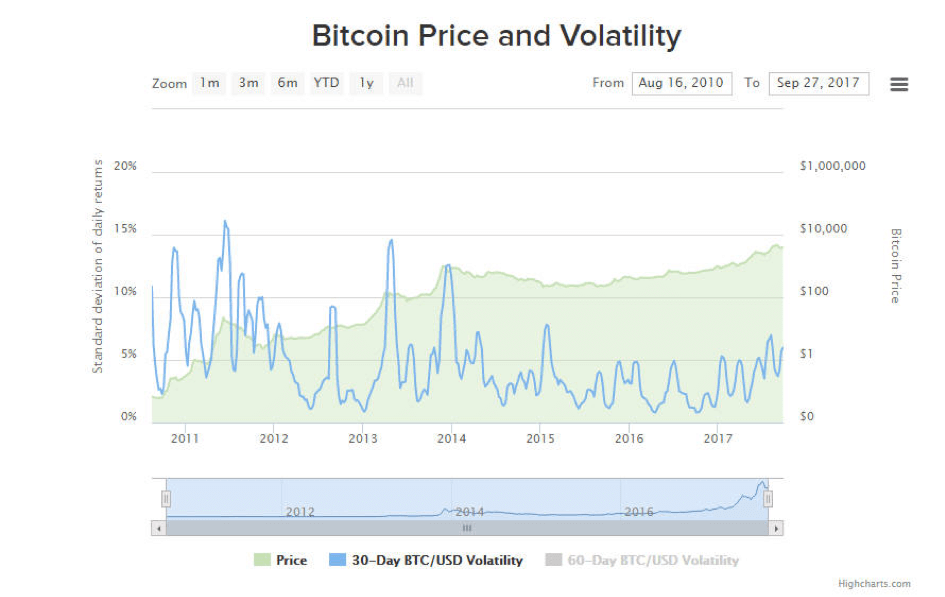Ethereum (ETH) was launched in 2013 by Vitalik Buterin and went live in 2015. Ethereum is introduced to counter the imperfections in Bitcoin. Its software has a feature that allows running any program, and this feature makes the blockchain process of Ethereum more efficient. Ethereum can be used to develop a new software called “decentralized application” and this is an independent technology that is not controlled by a central system or individual.
Why Trading Ethereum?
It allows the developers to build a decentralized application as it is an open platform. Ethereum uses a blockchain network which makes trading simple and easy as well as eliminates all other third parties. Corporate clients are also backing Ethereum due to its blockchain networking and third parties elimination. This backing results in a hike in Ethereum price. Here are some reasons why one should trade Ethereum on CFD:
- An investor can enjoy the profit either Ethereum price falls or rise.
- Ethereum traders can react quickly to price fluctuation without owning any Ethereum digital coin.
- Investors can trade Ethereum by small leverage and investment.
(Your capital is at risk)
Advantages:
Here are some advantages of trading CFD on Ethereum:
- Investors can trade Ethereum by buying and selling. This allows gaining profit while Ethereum moves up or down.
- The leverage used enables traders to earn more.
- Ethereum enables instant trading by instantaneous execution of orders.
- Ethereum CFDs can be purchased with fiat money.
- Ethereum trading does not need to store or hold any Ethereum coins.
Disadvantages:
As everything has some benefits but also some drawbacks. Here we are listing some drawbacks of Ethereum trading on CFD:
- Ethereum does not have a single function like Bitcoin. There is a big issue of networking and scaling congestions.
- Ethereum uses different programming languages like Phyton, Java, and C++. Ethereum’s programming language is also tricky and difficult. It has a complicated programming language.
- Ethereum is considered as a gas; it is extremely volatile and it is risky to invest in Ethereum.
- Negative reporting about the market can significantly reduce the price of Ethereum.
How to Trade?
Here we will discuss how to trade Ethereum on different trading platforms:
AvaTrade
- Open a trading account on the AvaTrade platform.
- Deposit funds in an account via credit cards, e-payments methods (WebMoney, Skrill, etc.), and wire transfer.
- Select Ethereum on the platform and invest the desired amount for trading
IQ Option
- Open a trading account on the IQ option platform.
- Deposit funds in an account via Master cards, VISA, e-payments methods (WebMoney, Skrill, etc.), and many more.
- Select Ethereum on the platform and invest the desired amount for trading
Plus500
- Open a trading account on the Plus500 platform.
- Deposit funds in an account via fiat money and cryptocurrency methods.
- Select Ethereum on the platform and invest the desired amount for trading
Where to buy ETH:
Ethereum can be bought from the exchanges are listed below:
- Coinbase
- Robinhood
- Binance
- Square Cash
- Coinmama
Things you should know before Trading with Ethereum
What is ETH?
It is a distributed computing platform that runs applications on top of the distributed network of computers, known as the Ethereum Virtual Machine (EVM).
For those unfamiliar, the Ethereum network operates on a peer-to-peer, unstructured, version of the internet, with everyone — not just miners, but all people on the network — acting in their own self-interest. Therefore, anyone with enough computing power, power of Proof-of-Work (POW), and willingness to participate (but not to build code) can run a blockchain and generate a new chain of transactions — much like a Googling your search and clicking the “Googling” button will generate some amazing results.
How does this benefit everybody?
Ethereum has created a new way of creating new blocks of transactions, called “proof-of-work”. Proof-of-work is just like an algorithm which allows a miner to generate new transactions, which must be validated by everyone else on the network — who is not a miner.
Because it is done on a peer-to-peer network, you need a powerful computer to run proof-of-work, which normally is very expensive. In addition, the blockchain does not have a public ledger of transactions, which means it is difficult for outsiders to reverse changes to transactions made on it. The power necessary to run proof-of-work on a whole network is a lot more than the power required to run a single computer.
What are the advantages of Ethereum?
Ethereum is rapidly growing in its infrastructure and adoption, with countless startups and other organizations entering the cryptocurrency space. It has its own cryptocurrency called ether (ETH). It will also eventually integrate support for other cryptocurrencies, like bitcoin and ether cash.
Ethereum isn’t a new technology, but it is gaining rapid acceptance as one of the most promising crypto-projects. This steady growth has led to it being recognised as the number one and most promising virtual economy and as one of the most promising start-ups of 2016.
How does Ethereum work?
In order to understand Ethereum, it is important to understand how a blockchain works.
Blockchains are commonly known as a peer-to-peer public ledger system, but that terminology doesn’t really capture what they do.
This is not to say that Bitcoin and Ethereum are the same, or even that they are blockchain projects, but in the grand scheme of things, they are different.
Firstly, Bitcoin uses a blockchain, to record every single transaction made on the network, and to ensure that they are made in the correct order. For the time being, Bitcoin is used as a currency, but its vision is slowly being realised through a series of other projects.
Unlike Bitcoin, which requires 21 million coins to be mined, Ethereum uses 21 million ether. This means there are many fewer miners required to validate transactions, and transactions that don’t go through are considered invalid. As well as faster, cheaper and more secure transactions, the blockchain is also used as a testing ground for new concepts and innovations.
What is Ethereum doing in a different way?
Unlike its predecessors, Ether (ETH) isn’t just used as a currency. It can be used for other projects, and can be used to buy and sell goods and services online. ETH is known as ether because its value is the same as ether on the Bitcoin blockchain.
Ether is a relatively new blockchain, with the network launched in August of 2014, and set to launch into full operation in July of this year. In the meantime, people around the world have been mining for ether on their computers, which isn’t done on the same way as Bitcoin miners do.
That means you have to have at least half of your computer’s computational power to use Ether to buy and sell goods on the Ethereum network. Mining requires hardware, electricity and, in many cases, a minimum of money.
Another difference is the way that Ethereum is released, rather than having a predetermined number of ether, which used to be around 21 million. Ether is then released on a every 15 minutes basis, making the launch of the network last about as long as it takes for 50 ETH to be created.
How can I buy ether?
Ethereum can be bought with traditional currencies. However, this means that you also have to register on an exchange and trust them with your personal details. You can buy Ethereum from cryptocurrency exchanges like GDAX or Kraken, or alternatively buy them from developers on the Ethereum Marketplace.
What is Ethereum not?
While it seems like Bitcoin has the hard drive of the technology, Ethereum is actually pretty simple in a lot of ways. While there is a base on which all other ideas are built, there is no digital currency that goes into the same levels of development as bitcoin.
What is the difference between Bitcoin and Ethereum
If you’ve ever seen a photo of a large Bitcoin block, then you’ve seen a Bitcoin (BTC) coin. The first person to mine Bitcoin blocks (mined) were those who solved a cryptographic problem called Proof-of-Work. They had to solve so many computational puzzles to gain a reward (called the miner’s reward).
In 2014, the miners who made the most blocks (previously called ‘blocks’) were awarded with money called the Bitcoin rewards (also known as ‘satoshi’). If they mined a huge number of blocks, they would win back bitcoin.
In the early days, you could make some money on purchasing Bitcoin tokens called ‘satoshis’, which were used to purchase some services at certain online shops. There were many different kinds of Bitcoin tokens but the one used for transactions was called a ‘real’ Bitcoin.
However, in 2017, Bitcoin itself has become very decentralized and is used to buy online services, such as buying a hotel room, using a payment processor such as Coinbase, buying a property and more. These services are no longer controlled by the Russian Government or an individual and are provided by third party companies. These services can be operated without a company or payment processor.
How does Ethereum differ?
Ether is a new type of cryptocurrency and the technology underlying its development and development. To fully understand its features, we need to take a look at what is a blockchain?
A blockchain, usually abbreviated as a blockchain, is a chain of blocks of data stored on the Ethereum network that are resistant to tampering by malicious users. This is because each participant in the blockchain acts as a server that contains all the data, codes, and metadata needed to create a new block (with all of the information written in a clear way).
The developers have to rely on smart contracts written on top of the blockchain to execute the tasks that are assigned to them, which are uploaded on a secure server called the virtual machine or simply a public internet.
(Your capital is at risk)
Security, speed and scalability
What makes Ethereum so different is that its creators believe that there is a low risk of fraud and of paying for a service if you get it from someone else. This means that you don’t need to get a bank account or use a payment processor, because this is handled for you and secured on the blockchain.
That means that in your case, you’re paying for a service just with Ether. Instead of using credit card numbers and credit card details, you use Ethereum tokens as payments. This is to simplify transactions, provide faster processing, and to save on processing fees and processing costs.
Part of the team that develops Ethereum calls itself the core developers, so it is full of people working on the technology. So we will see that a blockchain network is not just a chain of blocks of data, but also the software necessary for its operations.


